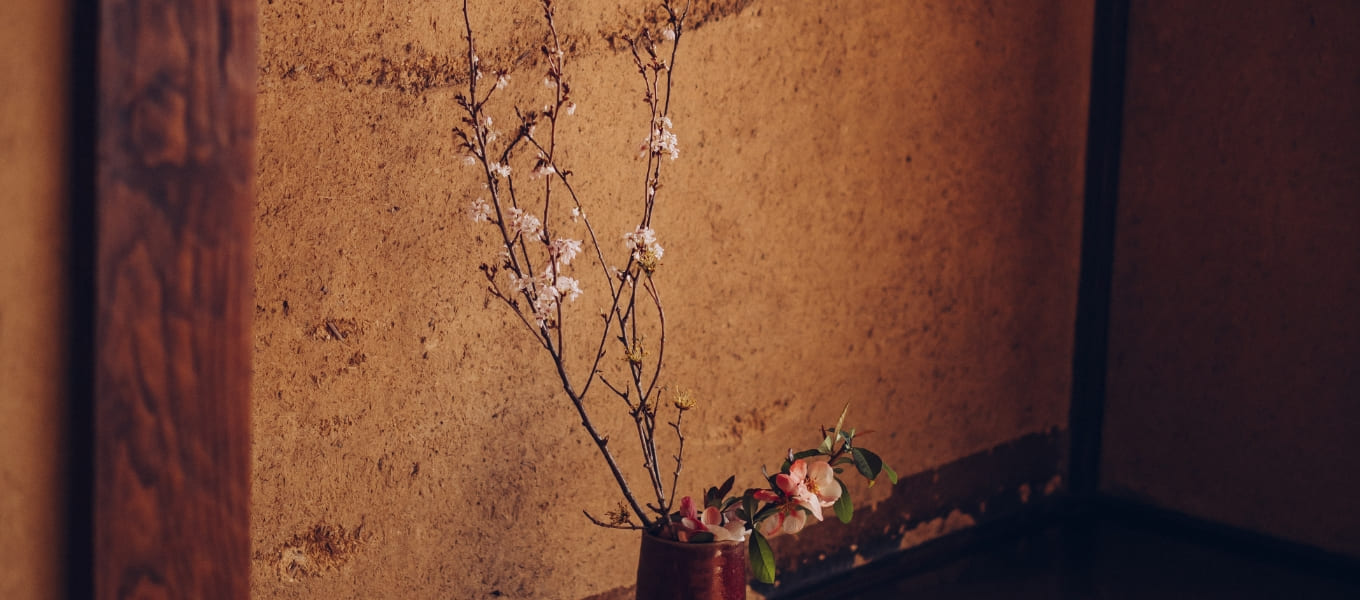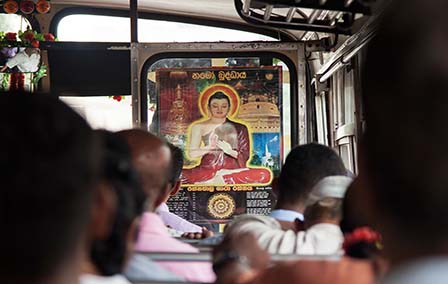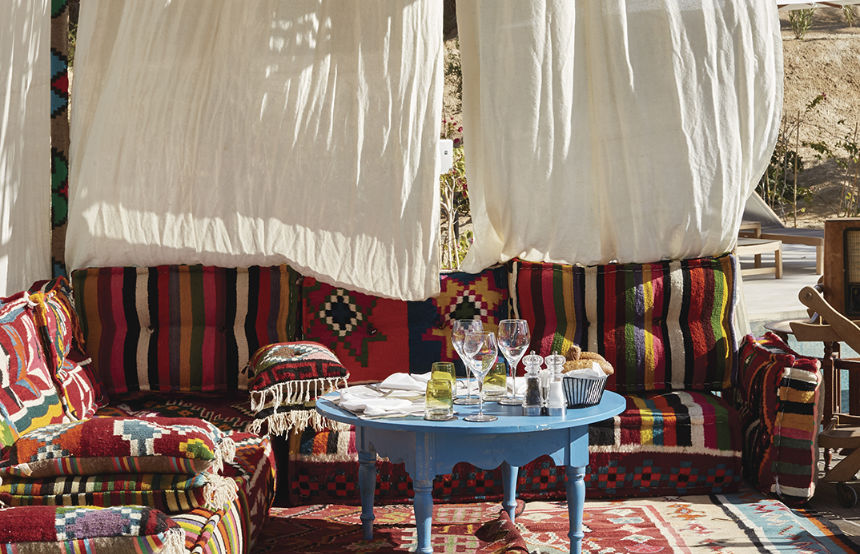Published 15th May. 2024
Reading time
Sri Lanka’s verdant rolling hills, pristine coastline and rich cultural tapestry are enticing draws for travellers. Unsurprisingly, this teardrop-shaped isle draws visitors from near and far; the tourism sector contributes over ten per cent of its annual GDP, a figure which is only set to rise. This mass influx of tourists has consequences, however. Hotels across Sri Lanka consume nine times more water than a single household per night per person, while the tourism industry itself creates twice the volume of solid waste that municipalities produce. How can we make travel a force for good? Read on for our guide to sustainable tourism in Sri Lanka…
1. Undertourism in Sri Lanka
2. Philantourism in Sri Lanka
3. Community-based tourism in Sri Lanka
4. Indigenous tourism
5. Flight-free travel
Counting over 600,000 tourists in the first quarter of 2024 alone, responsible management of tourism in Sri Lanka is a necessity. Tackling the issue head-on, the country has launched a specialist Sustainability Tourism Unit in conjunction with the United Nations Development Programme, with the aim of promoting sustainable practices within the tourism industry. But how can tourists play their part? This is where Undertourism comes in – the act of choosing off-the-beaten-track destinations that see far fewer visitors. In Sri Lanka, swap tourist-laden resorts on the southwestern coast for beaches in the northeast: Nilaveli and Uppuveli Beaches provide all the splendour of the Sri Lankan coast but without the crowds. Safari seekers, skip the busy parks of the south and head to Wilpattu National Park in the northern province to spot elephants, the elusive sloth bear and maybe even a leopard. Travelling to under-the-radar spots such as these not only helps to spread the benefits of tourism more evenly, but tourists have a much more enriching experience, too.

Image by Carlota Weber Mazuecos
Sustainable tourism in Sri Lanka is easy peasy if you know how to do it right. We’ve even developed our own responsible travel concept (and it's one we’re pretty proud of). Philantourism is the act of choosing a holiday destination based on where tourism is needed the most, which in turn helps the local economy. Sri Lanka has suffered from a severe economic crisis in recent years, meaning it’s all the more crucial for tourists to visit the country (not that we needed an excuse). Philantourism, in practice, looks like staying in community-run lodges, buying handcrafted goods and eating in locally-owned restaurants. Keep your conscience clear and bring back some fragrant Ceylon tea from the Central Highlands, artisan-made Palmyra baskets, or a colourful Raksha mask to hang on the wall. In the mood for culture? Opt for a community-led tour through the ancient site of Anuradhapura or embark on a nature walk off the tourist trail in Anamaduwa with a local guide.
A key part of sustainable tourism in Sri Lanka is the focus on community. Community-led activities are a great way to ensure your money reaches the right people. While visiting the culture-rich city of Kandy (a must-do on any itinerary), travel to the tea plantations for a guided tour by local tea planters. Observe the tea-making process in action, from plucking leaves in the thick jungle to the final touches in the factory (followed by obligatory tea-tasting, of course). Other community-based activities include lantern-making workshops in Dambulla. Time your visit to the Vesak festival, celebrated on the full moon in May, and help create ethereal bamboo and paper lanterns in a local-led workshop. If you can’t get delicious dosas and egg hoppers out of your mind? Take part in a cookery class run by a Sri Lankan family in the coastal city of Galle and impress with your newfound skills at your next dinner party.

Image by Maygutyak/Fotolia
Sri Lanka's Indigenous Vedda account for less than one per cent of the national population. Believed to be the direct descendants of the island’s earliest inhabitants, the Vedda were oppressed by Sinhalese rulers over many centuries. Today, there are still no specific laws protecting Indigenous rights. This makes responsible engagement with the Vedda even more important; practising Indigenous tourism helps to promote and preserve Indigenous ways of life. In Gal Oya National Park, stay in a Vedda-run lodge and experience luxurious camping in the forest around Rathgula. Take part in cooking sessions run by the Indigenous staff and learn how to make traditional meals with smoked meat and cassava roots. Sustainable tourism in Sri Lanka is all about enriching both tourists and destinations for the better: Indigenous tourism does just that. Who better to learn from about the country than the Vedda?
Train travel is Sri Lanka’s bread and butter. Renowned for having some of the most picturesque train rides in the world, it’d be a crime to travel to the South Asian nation and not zip through beautiful scenery on a train. The good news? Train travel is a great alternative to domestic flights and supports sustainable tourism in Sri Lanka. Yes, you’ll have to catch a flight to reach Sri Lanka, but there’s no need for internal flights once you’re there. Historically transporting tea and spices across the country for British colonists, today, Sri Lanka’s rail network is characterised by colourful passenger locomotives. Make sure to hop on a train winding through Hill Country for the ultimate scenic experience. Depart sprawling Colombo on the west coast and weave past lush tea plantations, gushing waterfalls and misty mountains as you pass between Kandy and Ella. Off the tourist trail, it takes under four hours to travel between the ancient Anuradhapura and the vibrant Hindu city of Jaffna in the north.
Written by Hannah Whitehall | Header image by Mathieu Richer Mamousse

Leave your Sri Lanka holiday planning to our skilled consultants, who use their firsthand knowledge of time spent on the isle to tailor every experience to you and the time of year. Be it walking with the Indigenous Veddha or cooking with a local family, in-country, we work with vetted local guides who think outside the box to make your trip unforgettable. Our fantastic Concierges are just a text away, helping with everything from insider tips to last-minute changes. And whether you’re after boutique hotels or eco-lodges, we’ve got our finger on the pulse for exciting new openings and can recommend the best properties to suit you.
ENQUIRE NOWPractical advice and inspiration for your next trip

Last updated: June 2025 by Frances Mavor, our Conde Nast Traveler Sri Lanka specialist. Sri Lanka, the small teardrop-shaped island nation in the Indian Ocean, is well known - and loved - for its breathtaking landscapes and rich culture. Its locals are friendly, its beaches are beautiful, its waters are crystal-clear, and its temples and palaces are shrouded in a timeless charm. But despite its irresistible allure, past events make it legitimate to ask, ‘is it safe to travel to Sri Lanka right now?
5th March 2024 - Sri Lanka Travel Tips

Sri Lanka is rightfully renowned for its diverse landscapes, attracting travellers from across the globe to experience some of Mother Nature’s finest work. Whether you’re travelling with your other half or with youngsters in tow, the scenery leaves little room for disappointment; think lush tea hills, stirring mountains and enticing coastlines. Eager to fly to the uniquely pear-shaped island? We’ve compiled a list of some of the most unmissable landscapes in Sri Lanka.
11th September 2023 - Sri Lanka The Natural World

There’s more to Tunisia holidays than blissful beaches. History buffs are in luck with plenty of UNESCO World Heritage sites to explore, while architecture enthusiasts can admire the coastal towns’ white-washed facades. If natural wonders are more up your alley, Tunisia’s vast salt flats and towering palm groves are a must-see, while the artisanal treasures in the Medina of Tunis await those on a souvenir search.
9th December 2025 - Tunisia Travel Inspiration

Our team of destination experts will get to know you and your unique requirements for your holiday

We work with you to build an ultra-personalised holiday itinerary with your choice of accommodation, experiences and activities

All of our holidays include little extras designed to make a big difference to your trip, from fast-tracking you through airport check-in and security to our network of local Concierges